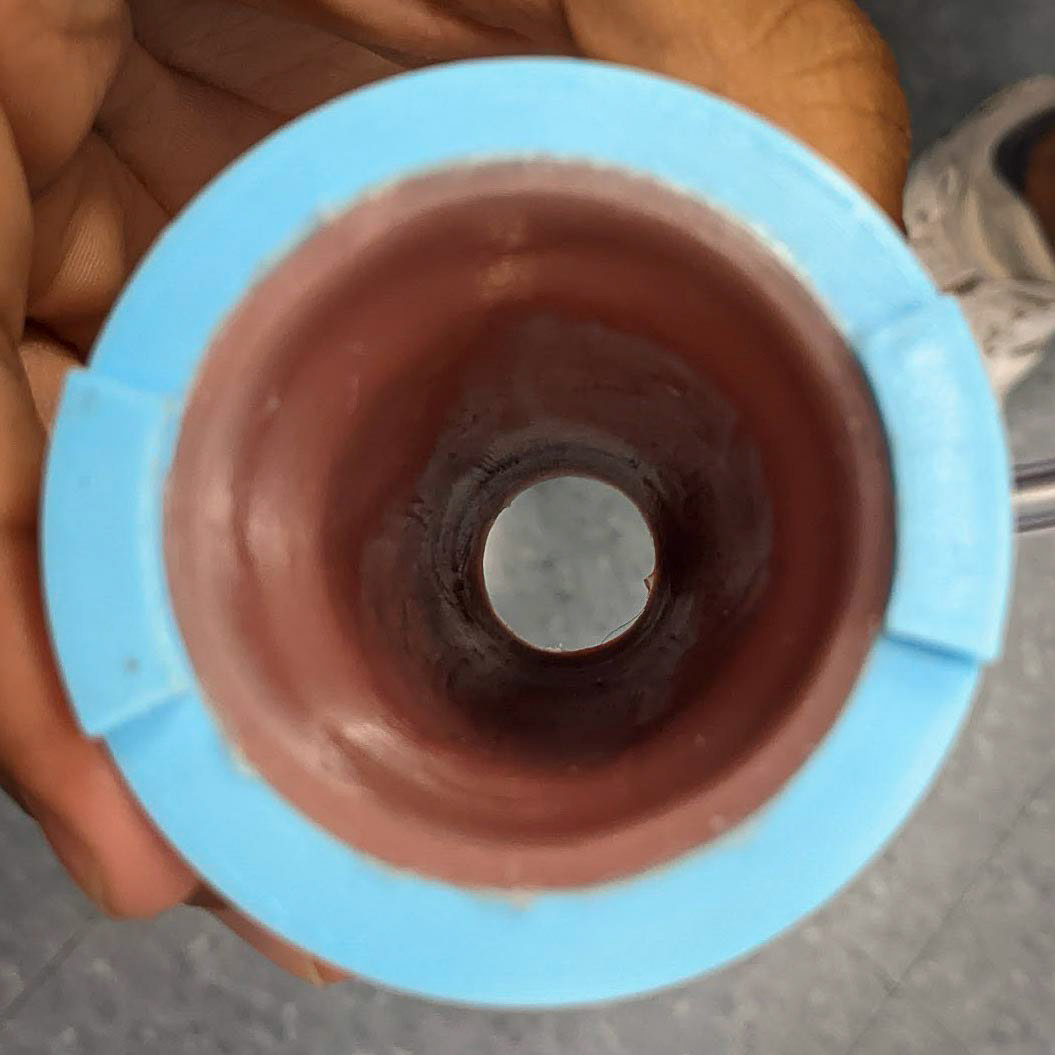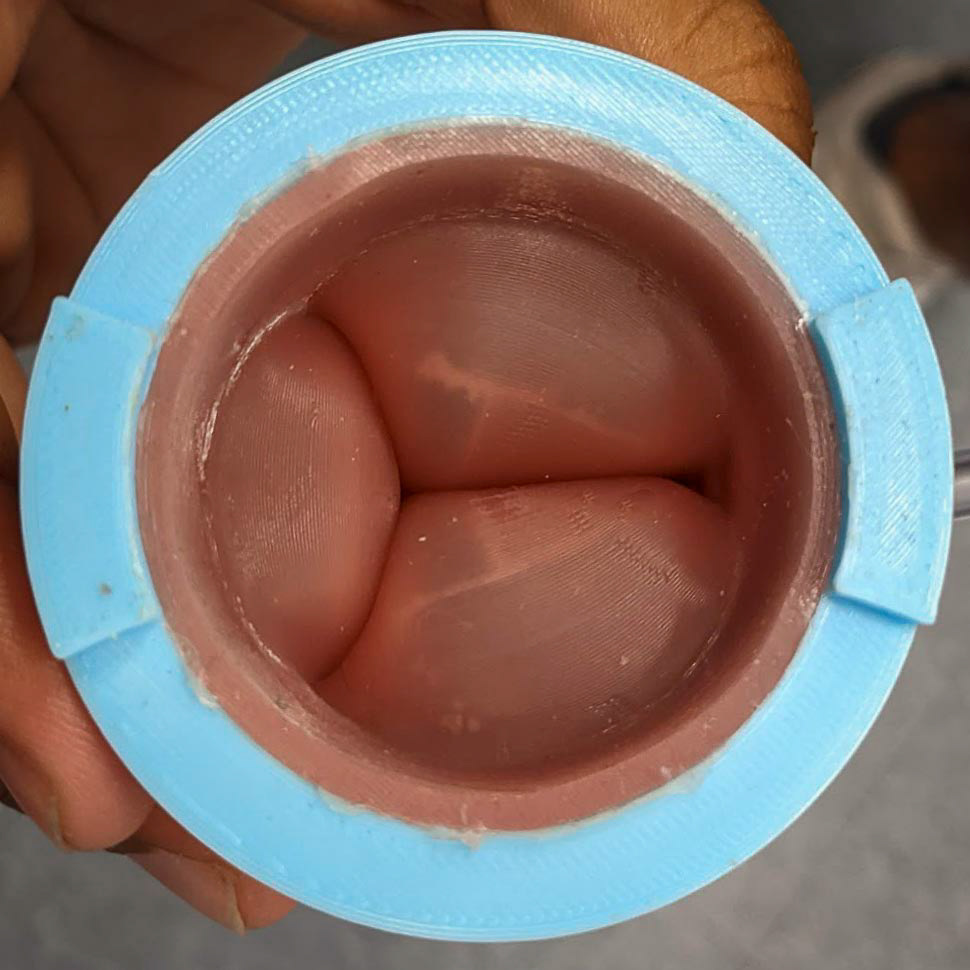Project Pylorus Final Deliverable
Background
Boston Scientific Corporation (BSC) is a medical devices company that specializes in minimally invasive endoscopic devices, interventional medical specialties, and more. In support of a testing campaign, BSC required a more anatomically relevant model of the human pylorus. No commercial or in-house solution existed, therefore Olin College was sponsored to create one for its R&D department. A human pylorus model enables BSC to reduce the use of swine testing for early design iterations. This practice has lots of limitations, namely animal anatomy and digestion is dissimilar to humans. Additionally, an in-house model reduces testing turnaround time and allows better control of testing conditions.

Deflated Soft Pylorus Actuator

Inflated Soft Pylorus Actuator
Soft Pylorus Actuator with Open Housing
Results
BSC’s request for a working model of the human pylorus (the sphincter at the bottom of the stomach). BSC’s requirements were for accurate force, accurate geometry of the pylorus, reproducible documentation, and the ability to simulate different digestion cycles.
Through insights from existing biomedical research, digestion models for other industries, actuator down-selection, and actuator testing we created a benchtop model of the pylorus. The model featured a user interface for selecting actuation frequency, solenoids for maintaining consistent pneumatic pump pressure, and a footprint that fits within simulated human body temperature chambers.
